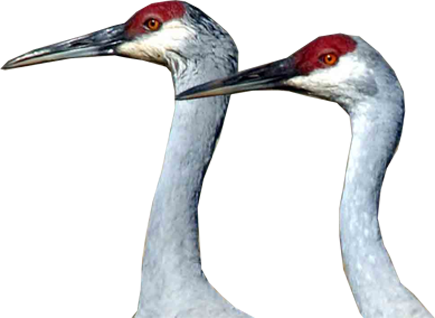Innovative Wetlands Biologist and Manager Receives IWJV Award
Dave Mauser is known as both a conservation leader and innovator throughout the Pacific Flyway and beyond. During an illustrious career as one of the most skilled habitat managers in the National Wildlife Refuge System, he developed and maintained habitat critical to sustaining continental populations of migratory birds – and did it with a flair for innovation. For these reasons, the Management Board and staff of the IWJV are excited to present him with the 2014 Conservation Partner Award.
Mauser consistently saw the power that the public and other organizations can bring to the table in promoting sound conservation ideas. He was able to harness that energy to conserve habitat on both public and private lands. For example, farmers in the Klamath Basin today tout the benefits of having wetlands as part of their farming operations. This is because Mauser spearheaded a unique and innovative approach, termed “Walking Wetlands,” that was first used to address problems facing Tule Lake National Wildlife Refuge. Tule Lake is the only refuge within the system legislatively mandated to conduct intensive commercial agriculture within the boundaries of the refuge. Dave helped find ways to integrate wetlands and agricultural lands while maintaining the ecological integrity and economic well-being/sustainability of rural economies.
The Walking Wetlands program was successful largely due to Mauser’s efforts in cultivating support by educating public landowners, private irrigation districts, the Bureau of Reclamation, and others to the wildlife and farm economic benefits of wetlands. As a result, there was an increase of thousands of wetland acres in the Basin, as well as an increase in the abundance and diversity of migratory birds.
“Dave Mauser is, hands down, one of the best wetland managers in the West,” said Dave Smith, IWJV Coordinator. “Yet what separates him from so many other habitat managers is his commitment to innovation and partnerships. He truly set the standard for excellence in the field of wetland habitat management.”
In addition to the rapid expansion of Walking Wetlands within the Klamath Basin, the U.S. Fish and Wildlife Service received inquiries about the program from other areas of the West, including the Skagit River Delta in Washington and the Sacramento/San Joaquin Delta of California. Implementation of Walking Wetlands onto private lands was rapid, in part due to the program’s ability to help farmers enter into the emerging markets of organic farming.
Along with his expertise in wetland ecology, Mauser has a tremendous ability to communicate his knowledge and ideas. He can hold meaningful conversations about wetland ecology with farmers, ecologists, birders, hunters, the media, lawyers, and the list goes on. His ability to speak at so many levels ensured that his message was heard throughout the Klamath Basin and beyond.
Prior to his retirement this year, Mauser served as the lead Supervisory Wildlife Biologist on the Klamath Basin National Wildlife Refuge Complex – one of the largest refuge complexes in the nation.

From left to right: Miles Moretti (CEO Mule Deer Foundation),
Dave Smith (IWJV Coordinator), and Dave Mauser (retired Supervisory Wildlife Biologist on the Klamath Basin National Wildlife Refuge Complex).

